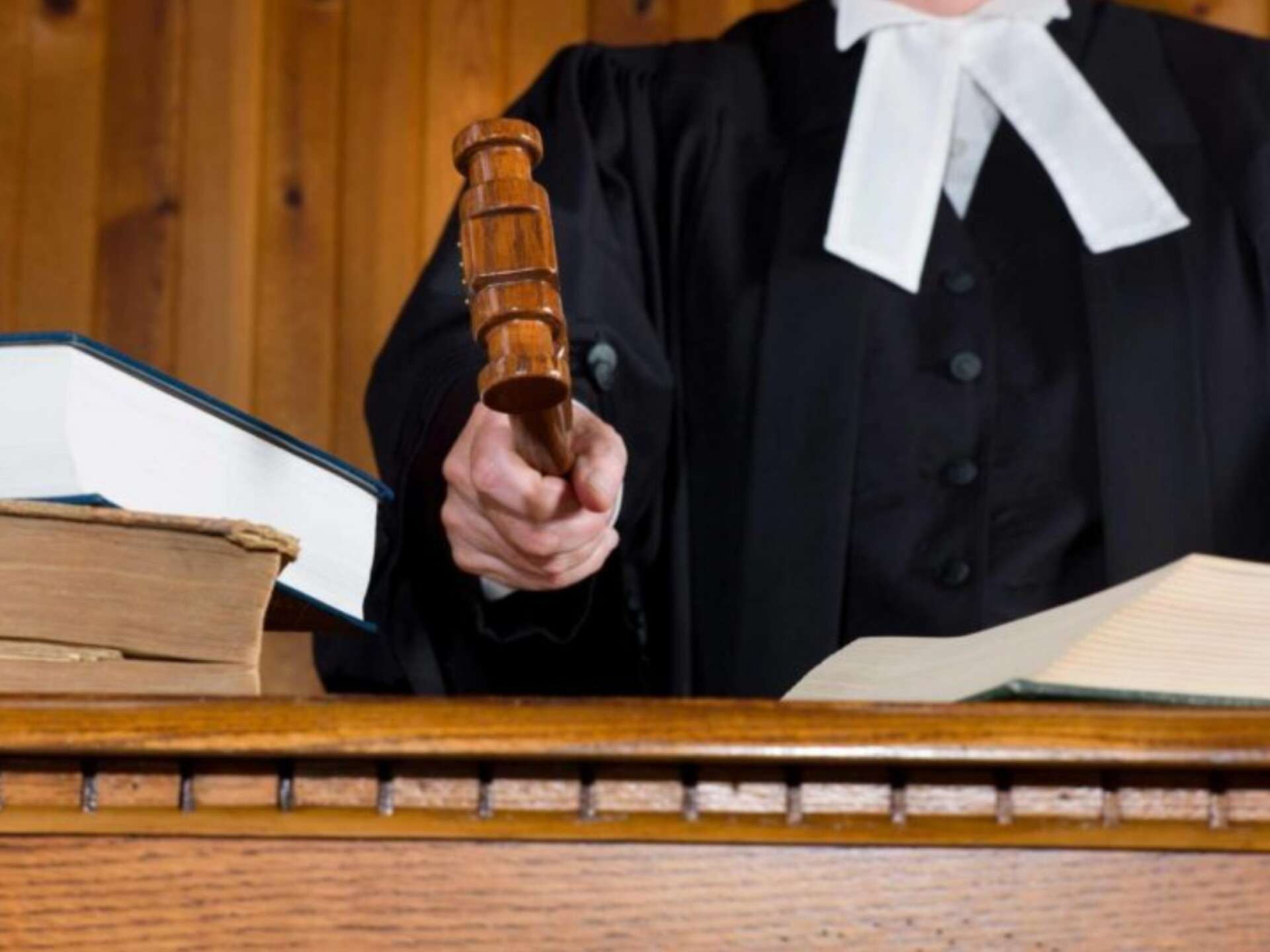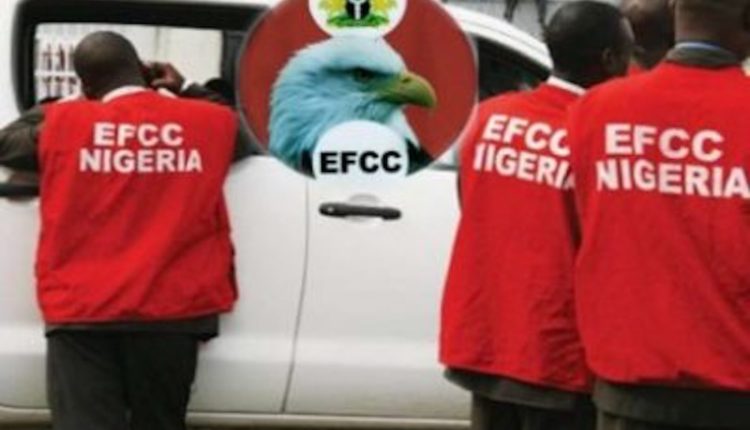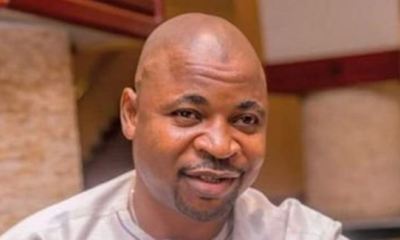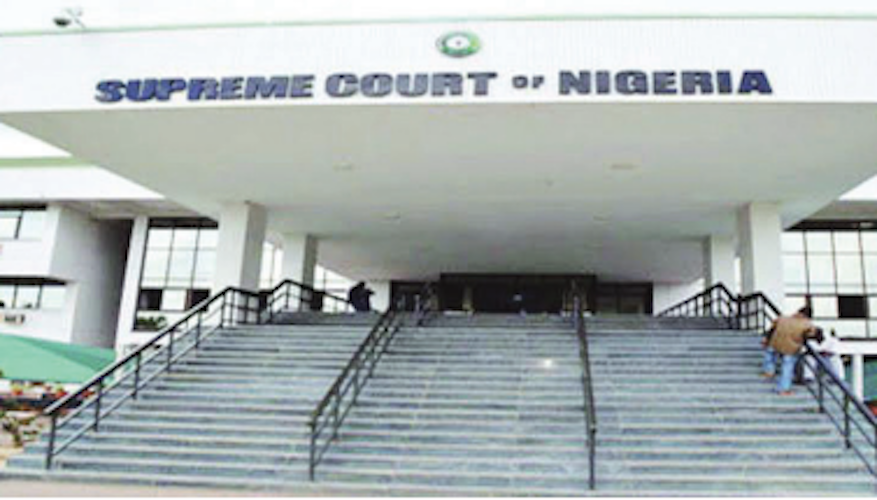Law
Victory for Nigeria as UK court halts enforcement of $11bn P&ID award

After over five years of legal fireworks, Nigeria has finally succeeded in halting the enforcement of the $11 billion arbitration award in favour of P&ID.
In a judgment delivered by email, Robin Knowles, justice of the Commercial Courts of England and Wales, upheld Nigeria’s prayer on the ground that the award was obtained by fraud.
Having accepted Nigeria’s argument, Knowles will now have to choose from three options: to return the award to the tribunal, in whole or in part, for reconsideration; to set the award aside in whole or in part; or to declare the award to be of no effect, in whole or in part.
He has asked the parties to make their arguments on the next line of action at a date to be arranged.
TheCable had reported on Saturday that the much-awaited judgment would be delivered on Monday.
A private arbitration tribunal had on January 31, 2017, ordered Nigeria to pay $6.6 billion to P&ID plus interest beginning from March 20, 2013.
With the interest rate fixed at seven percent amounting to $1 million a day, the potential payment had accumulated to over $11 billion before the verdict.
‘AWARDS OBTAINED BY FRAUD’
In making his determination, Knowles said: “In the circumstances and for the reasons I have sought to describe and explain, Nigeria succeeds on its challenge under section 68. I have not accepted all of Nigeria’s allegations. But the Awards were obtained by fraud, and the Awards were, and the way in which they were procured was contrary to public policy.
“What happened in this case is very serious indeed, and it is important that section 68 has been available to maintain the rule of law.
“Section 68 (3) provides: ‘(3) If there is shown to be serious irregularity affecting the tribunal, the proceedings or the award, the court may — (a) remit the award to the tribunal, in whole or in part, for reconsideration, (b) set the award aside in whole or in part, or (c) declare the award to be of no effect, in whole or in part. The court shall not exercise its power to set aside or to declare an award to be of no effect, in whole or in part, unless it is satisfied that it would be inappropriate to remit the matters in question to the tribunal for reconsideration.’
“I was asked by Lord Wolfson KC in closing that should my judgment conclude in favour of Nigeria, as it does, to leave over the question of the order the Court should make so that the parties have the opportunity to present argument once they have considered the judgment. I respect that request and will hear that argument as soon as that can be arranged.”
NIGERIA’S DEFENCE
Nigeria had filed an appeal against the enforcement of the arbitration award, and the UK commercial court granted the country relief in September 2020, returning the matter to the high court for trial.
At the two-month trial that took place before Knowles between January and March 2023, the Nigerian legal team argued that there was overwhelming evidence that the contract and the arbitration award had been procured through “an audacious fraud on Nigeria”.
They argued that the award should be set aside, citing the trials and conviction of some of the actors for corruption and money laundering as evidence of graft on an “industrial scale”.
Culled from The Cable
Law
EFCC Grants Bail to Two Kogi Officials, wants Yahaya Bello’s Fraud Case adjurned

The Economic and Financial Crimes Commission (EFCC) has granted administrative bail to two co-defendants, Umar Oricha and Abdulsalami Hudu, in a fraud case involving former Kogi State Governor, Yahaya Bello. The case, centered on charges of fraud totaling N101.4 billion, has been adjourned until November 27, 2024, by the Federal High Court in Abuja.
At the hearing before Justice Maryann Anenih, EFCC Counsel Jamiu Agoro requested an adjournment, noting that the 30-day compliance period for Bello’s summons, issued on October 3, had not yet expired. Agoro explained that the November 20 court date was inconvenient for the prosecution, and that seeking an arrest warrant would be premature as Bello still had a few days to respond to the summons.
Both the second and third defendants’ legal representatives supported the adjournment request.
Following this, Justice Anenih approved the EFCC’s request, extending the deadline for Bello’s appearance and authorizing service of the hearing notice to be sent to his last known address.
In a parallel development, the Federal Capital Territory (FCT) High Court in Maitama ordered a hearing notice to be posted at Bello’s residence on Benghazi Street, Wuse Zone 4, Abuja, and on the court’s notice board.
This step follows multiple missed court appearances by Bello since the public summons was issued, urging him to appear for arraignment on 16 counts related to the alleged fraud.
Justice Anenih emphasized the importance of due process, setting November 27, 2024, as the final date for Bello’s court appearance. This case has drawn attention to the EFCC’s efforts to enforce accountability among high-profile figures in Nigeria amidst allegations of large-scale financial mismanagement.
Law
Appeal Court Sacks MC Oluomo as NURTW National President, Reaffirms Baruwa’s Leadership

In a significant development, the Court of Appeal has annulled the appointment of Musiliu Akinsanya, popularly known as MC Oluomo, as the National President of the National Union of Road Transport Workers (NURTW).
The ruling upheld a previous ruling by the National Industrial Court, which had already recognized Tajudeen Baruwa as the rightful leader of the union.
The legal dispute surrounding the NURTW’s leadership has been ongoing, with tensions escalating within the organization.
Despite the court’s ruling in favor of Baruwa, MC Oluomo was recently elected by the Southwest Zone of the union during the Quadrennial Delegate Conference held last week in Osogbo, Osun State.
This election took place amid growing concerns and disputes within the union’s regional factions.
The Appeal Court’s decision is expected to settle the leadership question, restoring Tajudeen Baruwa’s position as the legitimate National President of the NURTW.
However, the union faces potential challenges in maintaining unity across its various regional branches, as supporters of MC Oluomo continue to advocate for his leadership.
This ruling marks a pivotal moment for the NURTW, as it works to stabilize its governance and address internal divisions that have led to several controversies and disputes over recent years.
Law
Supreme Court Rejects States’ Legal Challenge to EFCC’s Constitutionality

The Supreme Court of Nigeria has thrown out a lawsuit brought by several state Attorneys General challenging the constitutional validity of the Economic and Financial Crimes Commission (EFCC). The case, led by Kogi State, questioned the EFCC Act, arguing that it bypassed constitutional requirements regarding international treaties.
The seven-member panel, headed by Justice Uwani Abba-Aji, ruled unanimously to reject the lawsuit, deeming it without merit. Kogi State’s counsel, Mohammed Abdulwahab, SAN, argued that the EFCC Act’s incorporation of the United Nations Convention Against Corruption was unconstitutional, as the law had not received approval from a majority of state Houses of Assembly, as required by Section 12 of the 1999 Constitution. This, he claimed, invalidated the EFCC Act and similar anti-corruption laws.
The plaintiffs also contended that the EFCC and NFIU lacked the authority to investigate state or local government funds, accusing the agencies of encroaching on state powers. Abdulwahab sought a court ruling to nullify the creation of these agencies, arguing it would prevent a potential constitutional crisis.
Attorney General of the Federation, Lateef Fagbemi, SAN, defended the EFCC, asserting that dismantling Nigeria’s anti-corruption agencies would harm the nation’s efforts to combat financial crimes. He argued that the National Assembly has the authority to create laws applicable nationwide to address corruption.
The court ultimately upheld the EFCC Act, ruling that the National Assembly’s legislative powers on corruption are valid and enforceable across all states. Justice Abba-Aji noted that Kogi’s revelations about state officials being investigated exposed ulterior motives behind the lawsuit, describing it as an attempt to shield certain officials.
“No state has the right to enact laws that contradict the statutes passed by the National Assembly,” Justice Abba-Aji said, delivering the judgment. The court dismissed the suit in its entirety, reaffirming that the EFCC Act and other federal anti-corruption laws remain constitutional and enforceable across Nigeria.
-

 Crime1 year ago
Crime1 year agoPolice nabs Killer of Varsity Lecturer in Niger
-

 News10 months ago
News10 months agoFCT-IRS tells socialite Aisha Achimugu not to forget to file her annual returns
-

 Appointment1 year ago
Appointment1 year agoTinubu names El-Rufai, Tope Fasua, others in New appointments
-

 News From Kogi1 year ago
News From Kogi1 year agoINEC cancells election in 67 polling units in Ogori-Magongo in Kogi
-

 News From Kogi1 year ago
News From Kogi1 year agoEchocho Challenges Tribunal Judgment ordering rerun in 94 polling units
-

 News1 year ago
News1 year agoIPOB: Simon Ekpa gives reason for seperatists clamour for Biafra
-

 Metro8 months ago
Metro8 months ago‘Listing Simon Ekpa among wanted persons by Nigeria military is rascality, intimidation’
-

 News10 months ago
News10 months agoKingmakers of Igu/ Koton-Karfe dare Bello, urge him to reverse deposition of Ohimege-Igu
